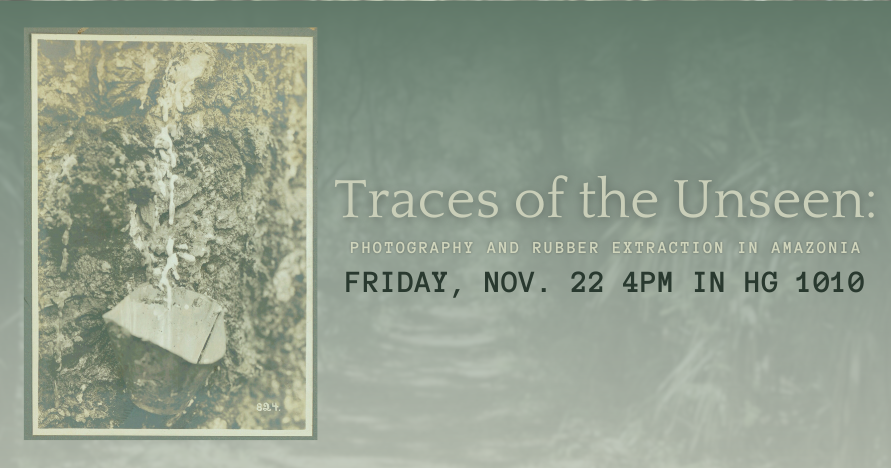
This talk examines photography's role as evidence of the destruction wrought by the rubber extractive boom in the Amazonian region. Challenging the assumption that early photography was seen as a privileged tool for delivering unmediated truth, Sá Carvalho argues that photographic indexical realism was regarded as both powerful and unstable as a form of evidence. Photographs had to be combined with texts, framed, and captioned, creating different pedagogies of the gaze that taught viewers how to recognize traces of destruction within the long history of extractive capitalism's expansion. By tracing the emergence of these visual practices, the talk explores how functions of the photographic medium were embedded in contested concepts and temporalities of modernity in the peripheries of extractive capitalism.
Carolina Sá Carvalho is an Associate Professor of Latin American and Lusophone Literatures and Cultures at the University of Toronto. Before joining the University of Toronto, she was a faculty member at the University of North Carolina at Chapel Hill. She is the author of the award-winning book Traces of the Unseen: Photography, Violence, and Modernization in Early Twentieth-Century Latin America (Northwestern UP, 2023), and several articles on modern and contemporary Latin American and Brazilian arts, photography, and literature. She is currently working on the environmental humanities project Mosquito Aesthetics and the Politics of Contagion in Brazil.
This event is co-sponsored by UCI Humanities Center - Building Intellectual Communities, Center for Latin American and Caribbean Studies, Film and Media Studies, Art History, Spanish and Portuguese.
